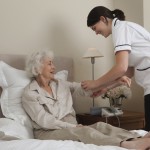Korsakoff syndrome, often associated with chronic alcohol abuse, is a neurological disorder that significantly impairs memory and cognitive function. While it can be a challenging condition to manage, there is hope for rehabilitation and recovery, especially when detected and addressed early.
 Understanding Korsakoff syndrome:
Understanding Korsakoff syndrome:Korsakoff syndrome is characterized by severe memory deficits, confabulation (the creation of false memories), and impaired cognitive abilities. It is primarily caused by a deficiency of thiamine (vitamin B1) in the brain. Chronic alcohol abuse is a common precursor, as alcohol interferes with nutrient absorption and contributes to thiamine deficiency.
Recovery from Korsakoff syndrome is not always complete, and some memory deficits may persist. However, early intervention and a comprehensive rehabilitation program can significantly improve an individual's cognitive function and overall quality of life. Here are key components of rehabilitation and recovery for Korsakoff syndrome:
Thiamine replacement therapy: The first step in treating Korsakoff syndrome is to address the underlying thiamine deficiency. Healthcare professionals administer thiamine supplements to help repair damage to the brain.
Nutritional support: A healthy diet with adequate thiamine is essential for recovery. Nutritional therapy can help individuals regain their strength and vitality.
Cognitive rehabilitation: Cognitive rehabilitation programs are designed to help individuals relearn essential skills and memory strategies. These programs focus on improving memory, problem-solving, and executive functions.
Speech and language therapy: Some individuals with Korsakoff syndrome may struggle with language and communication. Speech therapy can assist in regaining language skills and improving communication.
Physical therapy: Korsakoff syndrome may also affect physical coordination. Physical therapy can help individuals regain strength, balance, and mobility.
Psychosocial support: Emotional and psychological well-being is a crucial aspect of recovery. Counseling and support from mental health professionals can help individuals cope with the emotional challenges of living with Korsakoff syndrome.
Medication management: In some cases, medications may be prescribed to manage associated symptoms, such as anxiety or depression.
Structured environment: Providing a structured and safe environment is vital for individuals with Korsakoff syndrome. It minimizes confusion and reduces the risk of accidents.
Early intervention is key to the success of rehabilitation and recovery in Korsakoff syndrome. The sooner treatment begins, the better the outcomes can be. Unfortunately, Korsakoff syndrome is often not recognized until it reaches an advanced stage, underscoring the importance of addressing alcohol use disorders and seeking medical attention promptly.
While recovery may not be complete, many individuals with Korsakoff syndrome can regain a significant level of cognitive function and lead fulfilling lives with the right support and care. Rehabilitation and recovery are ongoing processes that require dedication from both the individual affected and their support network.
In conclusion, Korsakoff syndrome is a challenging condition, but rehabilitation and recovery are possible with early intervention and a comprehensive treatment plan. By addressing the underlying thiamine deficiency, providing cognitive and physical therapies, and offering emotional support, individuals living with Korsakoff syndrome can experience a substantial improvement in their quality of life and cognitive abilities.
Don't hesitate to contact us at 343 309 5289. We can help you choose the right establishment for you and assist you in your search.

Find a suitable senior residence